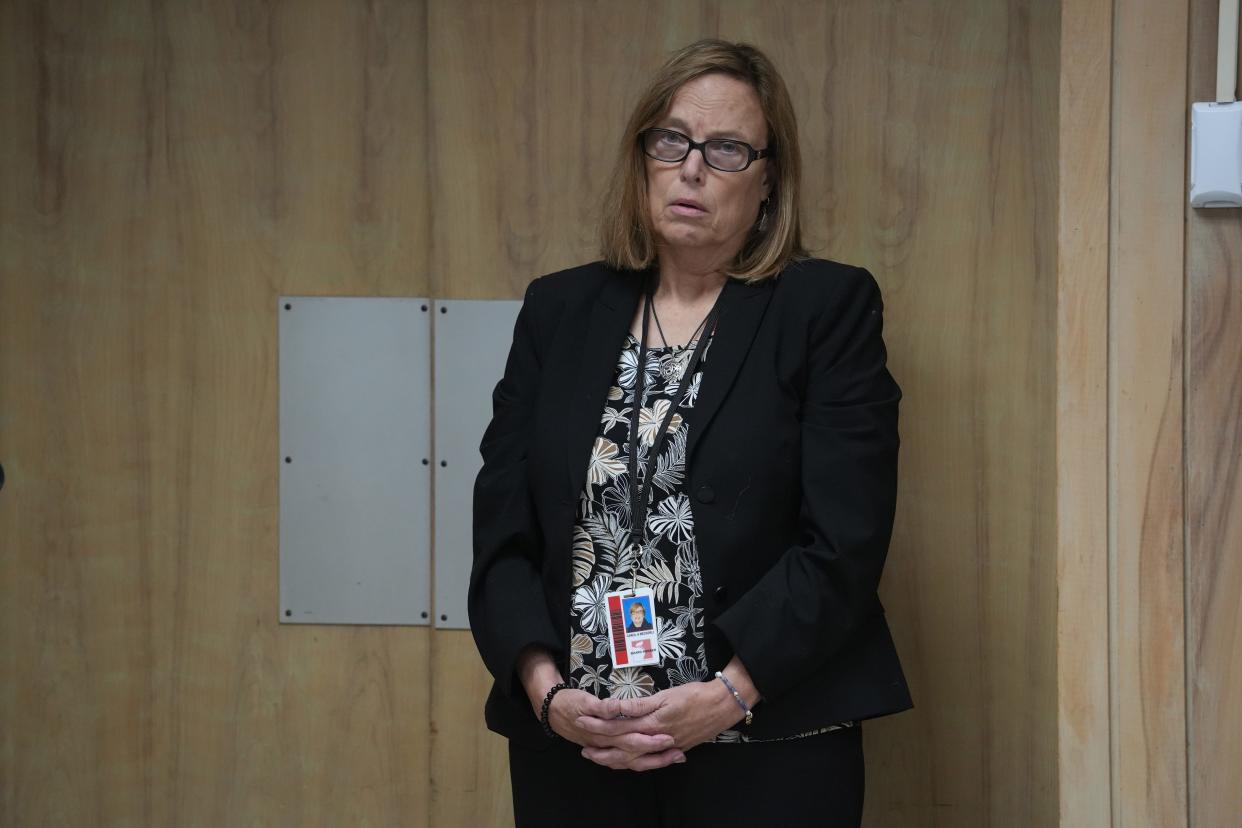Why did 2 Columbus City Schools board members decide against running for re-election?

Two of the four incumbent Columbus City Schools Board of Education members decided not to seek reelection on the Nov. 7 ballot, where the district's 7.7-mill, $100 million permanent improvement levy is also before voters.
The four seats up for election represent a majority of the seven-member board. Incumbents Carol Beckerle and Eric Brown won't be on the ballot. They'll be replaced on the ballot by political newcomers Brandon Simmons and Sarah Ingles, both of whom received the endorsement of the Franklin County Democratic Party.
So why did Beckerle and Brown not seek reelection?
District labor played a part in Beckerle's withdrawal
Beckerle withdrew her candidacy for the November election for school board following the May primary.
The move was in part because she didn't get support of the district's unions — while other candidates did, said both Beckerle and Franklin County Democratic Party chairman Mike Sexton. Columbus City Schools has two unions representing district employees: the Columbus Education Association (CEA), which represents some 4,500 teachers, librarians, nurses, counselors, psychologists, and other education professionals; and the Columbus School Employees Association (CSEA), which represents more than 3,200 custodians, bus drivers, secretaries and other district support staff.
"The other candidates had community and labor support," Sexton said.
Sexton said Simmons "edged out" Beckerle in the party screening process, and noted that Simmons enjoyed the support of both labor unions. All the other candidate's campaigns were also "financially, a lot farther along," he said.
"Carol didn't have any organizational support outside of the party," Sexton said.
Beckerle told The Dispatch that "certainly labor had something to do with it," noting she had not received endorsements from either the CEA or CSEA. It was disappointing, she said, that she received neither endorsement and failed to pass the party screening.
In an interview earlier this month, Simmons, a recent Columbus Alternative High School graduate, told The Dispatch that he was fortunate to have received the CEA endorsement and believed he was "everything our teachers want for our students."
"And I think our teachers saw that and felt that when they decided to endorse me, I'm a product or of our teachers' work," Simmons said.
In 2022, the CEA went on strike for three days at the start of the school year in August over class sizes, building conditions, ending with a contract that guaranteed class size reductions, air conditioning in all buildings and pay.
"I believe I still have a good relationship with both of those organizations, with both of their members," Beckerle said. "We have a common purpose that transcends any particular election cycle — and I think that by and large, we all recognize that."
CEA President John Coneglio said the CEA endorsement screening is a democratic process that involves a number of committees examining candidates.

"We endorse the folks that we think that will do the best job for the students in the district in general, that's all I can say," Coneglio said.
Report: School board candidates endorsed by teachers unions fare better
Candidates in school board races who receive the endorsement of their district's teachers union tend to perform better than those who do not, according to a report published earlier this month by Vladimir Kogan, a professor at Ohio State University, and Michael Hartney, a professor at Boston College.
The report, which examined districts in states other than Ohio, found that teachers union endorsements improved outcomes for candidates because they serve as a "cue" to voters who may prefer people who are seen as teacher-preferred.
"These effects are quite large, rivaling the importance of candidate partisan affiliation among Democratic voters," the report read.
A teachers union endorsement, Coneglio said, also tells voters that "the teachers that work in the district, feel that these folks would be the best candidates."
With no endorsements and levy vote looming, Beckerle stepped aside
Following the May primary, the Franklin County Democratic Party left Beckerle off the party's sample ballot for the Nov. 7 general election.
What will appear on the official election ballot, however, is Columbus City Schools' request for a 7.7-mill permanent levy expected to generate $100 million annually in revenue — if approved by voters.
"Given the importance of this levy that we placed on the ballot, I decided what was best for the kids was for me to withdraw from the race for school board and focus all of my effort on getting the levy passed and getting the message out to the community about why this levy is so critically needed," Beckerle said.
Despite not seeking reelection, she said she still felt called to serve the district.
"There's plenty of work that needs to be done on so many fronts that I'll just figure out where I will next place my attention going forward," she said.
Eric Brown retiring from lengthy public service career

Eric Brown, the other incumbent not seeking re-election this November, said it was time for him to step away after a cumulative 27 years serving on school boards. In his current eight-year tenure on the CCS board, he said he's proud of his accomplishments, but is ready to pass the baton of leadership off to the next generation.
“I feel good about leaving it in good hands," Brown said. "Things are moving in a great direction."
Brown, who is now 70, is also a former Chief Justice of the Ohio Supreme Court. He was appointed by former Gov. Ted Strickland in 2010, following the death of Chief Justice Thomas Moyer, and was the first person of the Jewish faith to hold the position in Ohio's history. He has also served as an assistant prosecutor, a magistrate and a judge in the Franklin County court system.
“I know that I will be doing something productive as part of public service or community service,” Brown said of his plans after his school board term ends.
cbehrens@dispatch.com
@Colebehr_report
This article originally appeared on The Columbus Dispatch: Why did 2 Columbus school board members not seek re-election?


